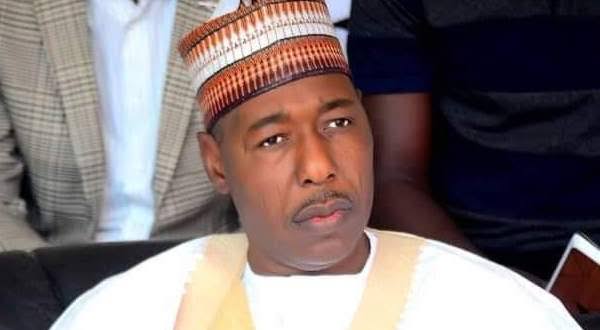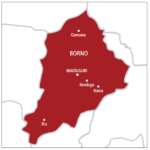Following the start of the insurgency and destructions of lives and property in Borno State over 10 years ago, International Humanitarian Partners, CSOs and the federal government rapidly mobilised and supported the state government and provided the needed aid necessary for people to survive and have shelters over their heads.
Camps in humanitarian settings are by design meant to be easy to assemble and dismantle and made up of mostly polythene materials, which are meant to be temporary shelters where people will settle, transition while they are going through difficulties. Once they are settled and have developed resilience, they are supposed to transition to a more stable and resilient situation particularly, with improved security so that they begin the process of healing and building resilience that will prepare them to build their own lives again.
- Imo monarch regains freedom one week after kidnap
- Bandits kill 7 near military checkpoint, abduct many in Katsina, Kaduna
No one wants people to remain in a state of the humanitarian situation, or worst still graduate humanitarian situation to be the norm. The UN Secretary-General was very clear about the need to promote resilience, peacebuilding and thus create the Humanitarian, Resilience, Peace and development Nexus to provide people dignity in living.
Over the past six years, the people in the camps have been requesting that they be allowed to go back to their homes. During my campaign aspiring as the Governor of Borno State, I went around and visited every camp and LGAs in Borno State. People were agitating and wanted to go back to their communities, they wanted to pick up their lives again, they wanted to be meaningful members of the society where security allows.
Our people living in IDP camps are tired and many decided that they wanted to go back to their communities. For example, people from Nganzai decided to move by themselves, people from Damasak moved from the camps in Niger by themselves and we were only told after the fact.
In the last two years, we have witnessed improved security and resilience of people. We now have 25 LGAs government where people live especially at the LGA headquarters. These headquarters are vibrant with life and opportunities.
We appreciate your support to our people. I totally understand that you have constraints and restrictions and may not be allowed to go to some areas where the government can go. We understand that sometimes even if you wish to go, you are not allowed, either by your job, your country of origin or your Life Insurance providers. We however have an obligation to go to anywhere that we adjudge as secure and where our people live.
We are all aware of the (horrible) situation in the IDP camps and the conditions of people in these camps, the menace of increasing drug abuse, prostitution, Gender-Based Violence, increased risk of epidemics as well as increased risk of COVID-19. Muna camp, for example, is adjudged to be one of the worst camps in the world.
Answering the yearning of our people for over six years, the government, in partnership with your representatives, came up with a return and resettlement plan where people are encouraged voluntarily to resettle in dignity outside camps. Extensive consultations were carried out with our community leaders, political leaders and camp representatives before commencement of implementation of the plan and regular consultations were carried out before each phase of the implementation.
In line with the Borno State Resettlement Plan and the Return Strategy as agreed by the government and our partners, we set out to voluntarily return and resettle our people where security permits. In the Voluntary Resettlement and return efforts, we offered there three options for our brothers and sisters:
1. People can leave the camp and go into Maiduguri and we give them money to rent house for a year in addition to food that will last them about three months. They can enroll for our SME Micro credit grant programme for SMEs.
2. People can leave the camp and safely go back to the newly built houses in their LGA headquarters or villages, where the military has given us security clearance and other civil security agencies are ready to deploy.
3. People can also choose to remain in an IDP camp in which case we move them to another camp as we know is done during camp mergers to give way to return of public services in some of these camps. The Mohammed Goni College of Legal and Islamic Studies (Mongolis) camp is back to its original function as a school and NYSC camp returned for its status. If you choose to stay in a camp, we take you to camp close to your village.
The state government, the federal government and some of our International Development Partners both Humanitarian and Development have been helping us in building houses in locations that are safe and fortified by trenches and military presence. These are the locations where we resettle people that choose to go back to their LGAs. By all standards, these are not in any way comparable to life in the IDP camps.
As part of the return/ resettlement package, before leaving camp, the government gave the IDPs food that will last for about three months. Each of the male heads of household is given N150,000 as capital to start a business, each female head of household is given N150,00, while a married woman is given N50,000 to start a business or petty trading.
These newly built houses, where people are resettled with food and non-food items, and capital to start their livelihood are what we call resettlement community. This is where people are being brought back to pick up the pieces of their lives.
These are the places we are saying you should leave people alone to settle down, reflect on what they have gone through in the last 10 years, plan their future and the future of their families and begin a process of rebuilding their lives in dignity. These are the places we are asking you not to go and make people continue to queue up for food that they can acquire for themselves, and where there are difficulties, the government itself will step in and provide.
What the government is asking you to do is to let people live in dignity and allow adults to assume the responsibilities they all crave to have and bring up their children with dignity. What we are saying is you should not take people living in their houses with their children, out to queue up for rations of food- it erodes their dignity as human beings and takes away the opportunity to teach their children the value of hard work which is a unique human attribute.
The Borno State Government has set up a Monitoring Team. This team is constantly monitoring the activities and progress being made in the resettled communities. The LGA chairmen are constantly giving feedback and where there are issues, the government steps in to address these issues, including supply of food as our primary responsibility.
We are very grateful for the support our partners have been rendering to our people. There are still thousands of people in many IDP camps across the state that need help and we need you to continue to work in these camps- where you have been working before. We do not wish to create new camps where they do not exist; what is needed is to support people build resilience and livelihood.
Also, it is important to note that starting distribution of food in communities where there was no need is indeed deliberately creating a humanitarian situation and dependency syndrome instead of supporting people to help themselves out of poverty and live dignified lives. Our administration will not accept this.
We are asking you to let people in these communities build on their resilience and start fending for themselves under the close monitoring and tutelage of the State government.
Governor Zulum’s address at a meeting with foreign and local humanitarian partners and civil societies.

 Join Daily Trust WhatsApp Community For Quick Access To News and Happenings Around You.
Join Daily Trust WhatsApp Community For Quick Access To News and Happenings Around You.

